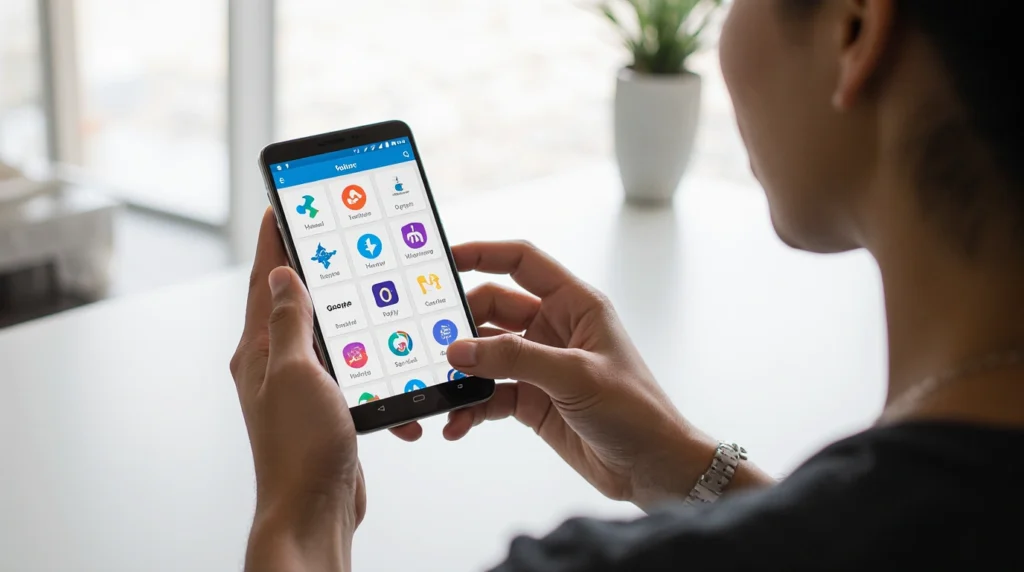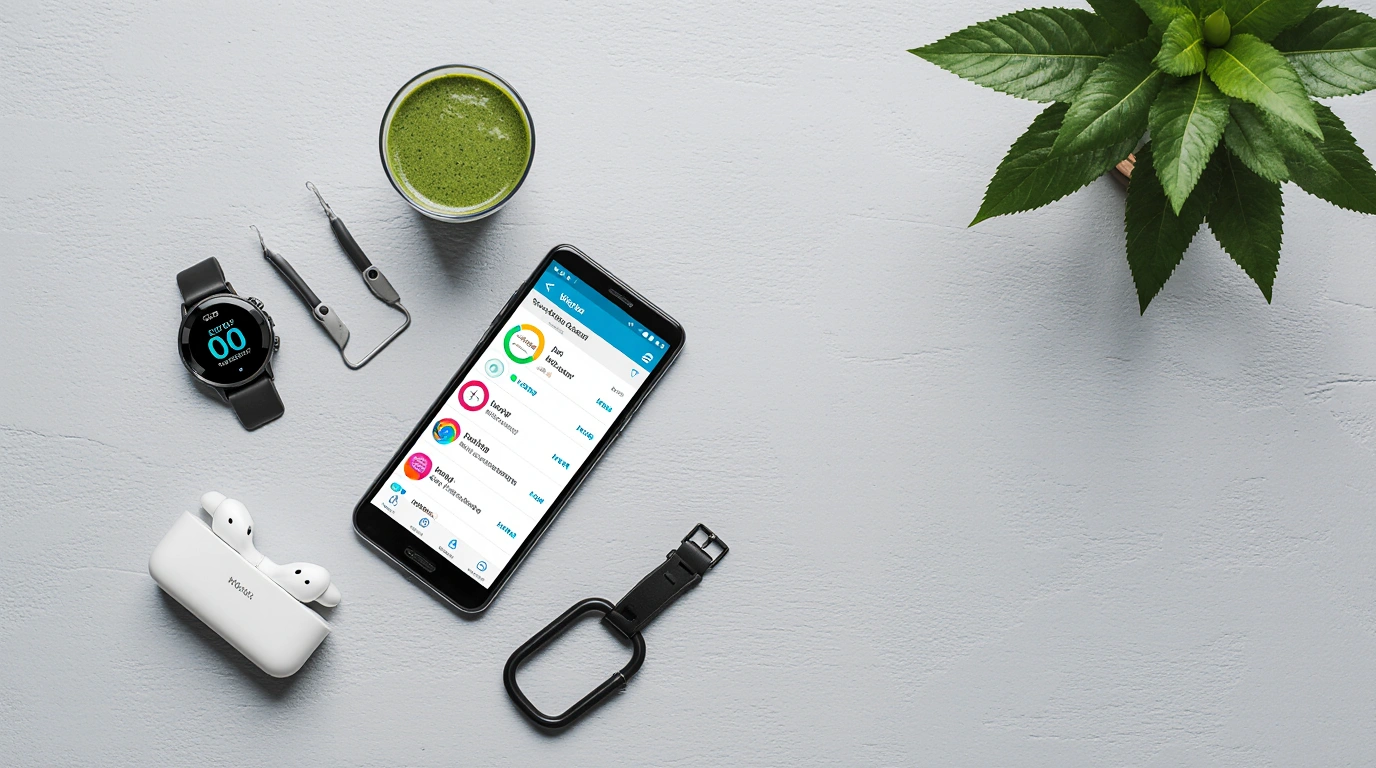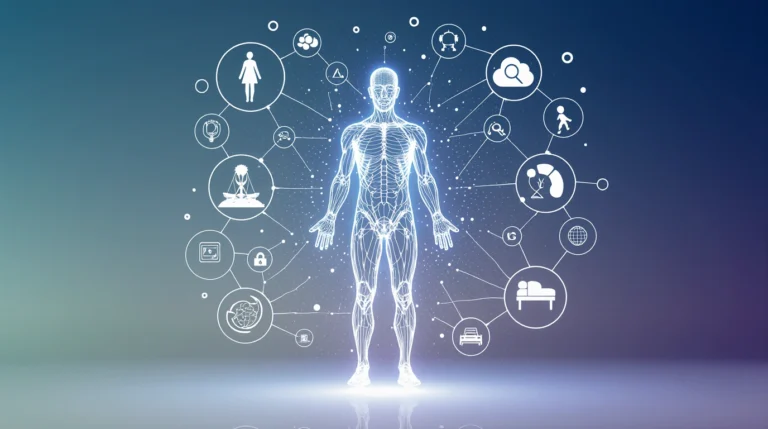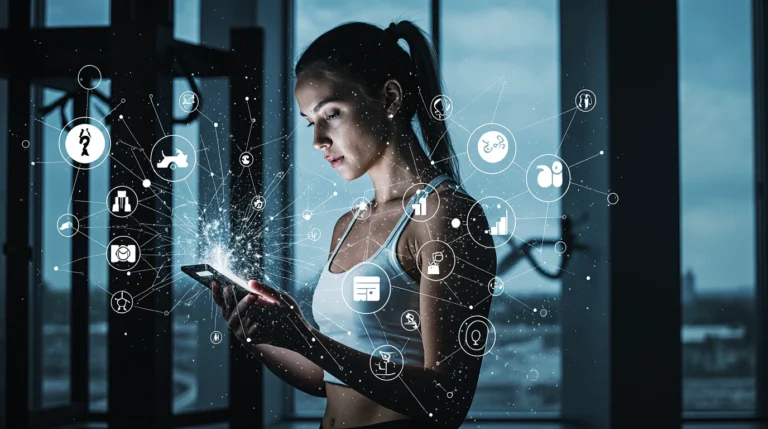The 5 Best AI Wellness Tools to Try in 2025
With the digital health market valued in the hundreds of billions of dollars, the app store is overflowing with promises of a healthier you. But how many of these apps are truly innovative, and how many are just glorified timers? The real revolution is happening now, powered by artificial intelligence. Discerning which platforms are genuinely helpful can be exhausting. That’s why we’ve done the research for you, diving deep into the market to identify the best AI wellness tools that deliver personalized, actionable insights to genuinely upgrade your well-being. This review is a key part of our ultimate guide to AI for wellness.
How We Chose the Top Health AI Apps

Our selection process wasn’t about finding the apps with the most downloads, but those with the most intelligent and practical application of AI. We focused on four key criteria:
- Personalization: Does the tool use AI to tailor its recommendations to the individual user, rather than offering generic advice?
- Actionable Insights: Does the app provide clear, data-driven insights that you can actually use to make better decisions?
- User Experience: Is the interface intuitive and the technology seamless, or is it a frustrating experience?
- Holistic Approach: Does the tool address a key pillar of wellness, from nutrition and fitness to mental health and sleep?
After extensive testing and comparison, here are the five platforms that truly stand out from the crowd.
The 5 Best AI Wellness Tools for a Healthier You
1. Ada Health: Your AI-Powered Symptom Checker
What It Is: Ada is an advanced symptom checker that uses a conversational AI to help you understand your symptoms. You chat with the bot, answering questions just as you would with a doctor, and it provides a report of possible causes.
Best For: Getting a sensible, data-driven preliminary assessment of symptoms before deciding whether to seek professional medical help.
Why We Chose It: In a sea of unreliable online symptom checkers, Ada stands out for its clinical rigor and transparent approach. It’s an ethical and intelligent first step for any health concern.
2. MyFitnessPal: The Veteran of AI for Fitness and Nutrition
What It Is: While MyFitnessPal has been a leader in calorie counting for years, its recent integration of AI has made it smarter than ever. The “Meal Scan” feature uses computer vision to identify foods from a photo, and its AI-powered “Smart Coach” provides personalized feedback.
Best For: Individuals who want a detailed, data-driven approach to tracking their food intake and exercise.
Why We Chose It: It’s the perfect tool to use after learning how to create your own custom meal plan, allowing you to track your adherence to the plan.
3. Calm: The Leader in Mental Health AI Tools
What It Is: Calm is a powerhouse in the mindfulness space, and it increasingly uses AI to personalize the user experience by suggesting meditations, sleep stories, and breathing exercises.
Best For: Managing daily stress, improving sleep quality, and building a consistent mindfulness practice.
Why We Chose It: Calm’s strength lies in its vast library of high-quality content combined with subtle but effective AI. It perfectly complements the techniques found in our guide on 5 Powerful AI Prompts for Immediate Stress Relief.
4. Whoop: The Ultimate AI Sleep Tracker and Recovery Coach
What It Is: Whoop is a screenless wearable band that collects physiological data 24/7. Its AI-powered platform analyzes your sleep, strain, and recovery to provide a daily “Recovery Score.”
Best For: Athletes and health-conscious individuals who are serious about optimizing their performance, sleep, and recovery.
Why We Chose It: Whoop’s AI is proactive. It doesn’t just show you data; it tells you what it means. For a detailed analysis of how it stacks up against its main competitor, see our in-depth Oura Ring vs. Whoop comparison.
5. ChatGPT/Gemini: The All-in-One Custom Wellness Bot
What It Is: Sometimes the best tool isn’t a specialized app, but a powerful, general-purpose one that you can customize. With the right prompts, general AI chatbots can become expert wellness coaches.
Best For: Anyone who wants ultimate control and flexibility without downloading multiple apps.
Why We Chose It: This approach empowers you, the user, to create your own tools. It’s free, infinitely customizable, and proves you can understand the science behind metrics like HRV with the right questions.
How to Choose the Right AI Wellness Tool for You
The “best” tool is always the one you’ll actually use. Consider your primary goal:
- For understanding symptoms: Start with Ada Health.
- For detailed diet tracking: MyFitnessPal is your best bet.
- For mental peace and sleep: Calm is an excellent choice.
- For peak performance and recovery: Whoop is in a class of its own.
- For a flexible, all-in-one solution: Master the art of prompting with ChatGPT or Gemini.
For a deep dive into the best apps dedicated to exercise safety, check out our detailed guide here.
Frequently Asked Questions (FAQ)
Are these AI wellness tools safe to use?
Generally, yes. The tools listed here are reputable. However, always be mindful of the data you share.
Do these apps replace a doctor?
Absolutely not. These tools are for support, not diagnosis. Always consult a qualified healthcare professional for medical advice.
Are these AI health tools free?
It varies. Ada and MyFitnessPal have robust free versions. Calm offers limited free content. Whoop requires a subscription.








2 Comments